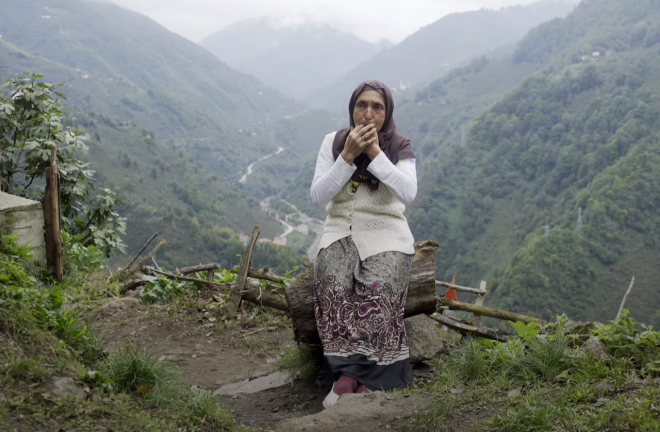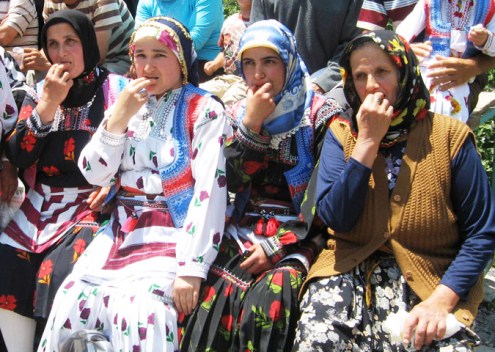 In Kuşköy, which literally means “Bird Village” in Turkish, the villagers have been able to communicate across long distances well before the invention of cellphones.
In Kuşköy, which literally means “Bird Village” in Turkish, the villagers have been able to communicate across long distances well before the invention of cellphones.
Laid out along a deep, lush valley in Turkey’s Pontic Mountains, Kuşköy isn’t an easy village to traverse quickly. So some time ago — 400 years, according to some local estimates — its residents invented a whistled language based on Turkish. Although threatened by the arrival of cell phones and the emigration of village youth, bird language is still alive and well in Kuşköy.
Lending wings to human words
Bird language consists of approximately 20 whistled notes, each based on a syllable in Turkish. The sound can extend as far as about 3 miles, according to villagers interviewed.
Even when two people are too far apart for whistles to travel between them, other villagers in between will pass along the message to the intended recipient.
 She’s the best whistler in her village.
She’s the best whistler in her village.
The language is mainly used for basic everyday purposes: inviting neighbors over for tea, calling for help in the field to pick apples, announcing arrivals to the village, funerals, births, or weddings.
Some of the human bird language communication mimics actual birdsong, according to İbrahim Kodalak, a Kuşköy villager. A particularly poetic example is the morning song of the blackbird, which Kodalak says is the same as a famous Koran verse when whistled in bird language.
An endangered language? Not if they can help it.
Since electricity arrived in Kuşköy in 1986, followed by cell phones, the need for bird language has been dwindling and it has begun to fall out of common use. The village’s population is also shrinking as young people move to bigger cities for education and higher-paying employment, as they are doing all over Turkey. This story was written in 2012, but already by 2020, producers of the documentary clip below says that only about 50 people use the bird language today.
But for the past 15 years, the villagers have held an annual festival to promote the language and village culture. The festival features music, dancing, and a contest between the village’s best whistlers. This year’s festival occurred on July 8 and was attended by more than 2,000 people.
The governor of Kuşköy’s district said that he wants “to use tourism to turn this language into an economic source for the region.”
He’d like major Turkish corporations, such as telecommunications firm Türk Telekom, to sponsor the festival and improve the village infrastructure so that more visitors can come see the speakers of bird language. It’s definitely something I’d like to see.
Would turning bird language into a tourism draw also strip it of meaning and authenticity? Or is it worth commercializing a language to keep it from entirely falling out of use? The future of Kuşköy may reveal the answer.
:: Eurasianet
Read more about nature and wildlife news in Turkey:
Banded Israeli Bird Suspected of Espionage In Turkey
In Remotest Anatolia, Lone NGO Speaks Up On Nature’s Behalf
Helping Turkish Wildlife Cross The Road
Lowest image via bulancak.net




